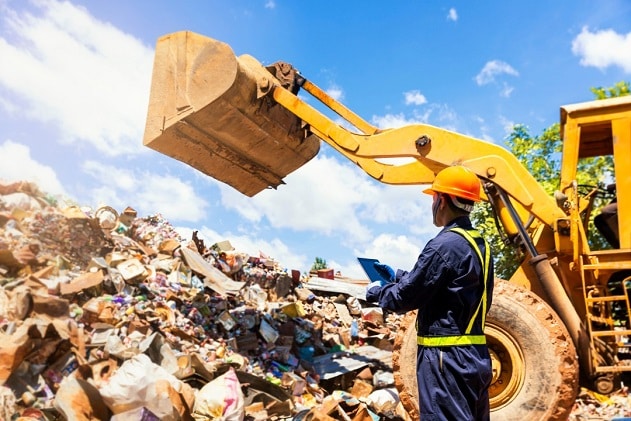The Hidden Benefits of Streamlined Waste Disposal in Construction

- Proper waste management improves project efficiency by reducing delays, clutter, and safety risks on-site.
- Recycling and reusing materials can lower costs and create additional revenue streams for construction companies.
- Eco-friendly waste disposal practices help businesses meet sustainability goals and attract environmentally conscious clients.
- Streamlined waste management ensures compliance with regulations, avoiding fines and enhancing a company’s reputation.
Managing waste on construction sites can be a bigger challenge than most people realize. With debris piling up, costs escalating, and environmental concerns mounting, many companies struggle to find effective solutions. Poor waste management leads to project delays, higher expenses, and a negative impact on sustainability.
But what if there was a way to streamline this process and improve the outcome? This post will explore how better waste disposal methods can not only save money but also boost efficiency and support eco-friendly construction practices. If you want your projects to run smoother, this guide is for you!
The Impact of Poor Waste Management on Construction Projects
Improper waste management on construction sites can have serious consequences. From excessive clutter to escalating costs, disorganized waste disposal directly affects both timelines and budgets. Construction projects often face delays when waste piles up, causing access issues and slowing down the workflow. This added stress often results in overtime costs and rushed decisions, both of which further inflate the project’s expenses.
Additionally, the environmental impact of poorly managed waste can’t be ignored. When materials are not disposed of responsibly, they end up in landfills, contributing to pollution and resource depletion. Hazardous waste can also pose risks to the surrounding area, affecting soil and water quality. Without a solid waste management plan in place, construction sites risk not only financial losses but also damaging their environmental footprint.
In the long term, neglecting waste management can lead to legal troubles and damage a company’s reputation. Failing to comply with local regulations regarding waste disposal could result in fines and project shutdowns, making this an issue no construction business can afford to overlook.
Cost-Effective Ways to Manage Construction Waste
There are plenty of affordable construction waste solutions that can help companies stay within budget while maintaining efficiency. One of the simplest strategies is to recycle materials. Instead of discarding excess wood, metal, or concrete, construction companies can repurpose them for future projects or sell them to recycling centers. Not only does this reduce waste, but it also creates a new revenue stream.
Another key approach is partnering with specialized waste management services. These companies often provide cost-effective solutions by offering bulk pricing for regular waste pick-ups or rental dumpsters. They also have the expertise to ensure materials are properly sorted and disposed of according to environmental standards, reducing the risk of fines or compliance issues.
Planning waste disposal in advance is also critical. By assessing the types of materials that will be used and calculating potential waste, project managers can set up an efficient disposal system from the start. This foresight minimizes unexpected costs and ensures that the workflow isn’t interrupted by unnecessary clutter.
Eco-Friendly Alternatives for Handling Construction Waste
As sustainability becomes a bigger focus in the construction industry, many companies are turning to eco-friendly practices to manage waste. One effective method is the use of biodegradable materials. These materials break down naturally over time, reducing the overall impact on the environment. By incorporating these alternatives into construction projects, companies can significantly reduce the amount of waste that ends up in landfills.
Reusing or repurposing waste materials is another powerful way to minimize environmental harm. Items like leftover bricks, tiles, or timber can often be reused in future projects or donated to other companies or organizations. Some businesses even find creative ways to repurpose materials on-site, turning scrap into functional elements for landscaping or other purposes.
These eco-friendly solutions not only benefit the environment but also improve the company’s public image. As more clients prioritize sustainability, demonstrating a commitment to green construction practices can attract eco-conscious customers and help a business stand out in a competitive market.
How Efficient Waste Management Improves Project Workflow
Streamlined waste disposal isn’t just about reducing clutter; it’s about making a construction site more productive overall. When waste is handled efficiently, the project workflow becomes smoother, allowing workers to focus on tasks without the distractions of a messy site. Clear and organized spaces not only boost morale but also minimize accidents caused by tripping over debris or navigating crowded pathways.
A well-managed waste disposal system improves coordination between different teams. For instance, when materials are separated and disposed of in designated areas, it becomes easier for workers to access the tools and materials they need. This reduces downtime and keeps the project moving forward without unnecessary interruptions.
Efficient waste management also plays a role in maintaining site safety. When there’s a proper system for waste removal, hazardous materials are handled quickly and correctly, reducing the risk of on-site accidents or environmental damage. Ultimately, a clean, organized workspace leads to a more productive and safer construction environment.
Long-Term Benefits of Streamlined Waste Disposal for Construction
The advantages of efficient waste management don’t stop at immediate cost savings or cleaner job sites—they extend into long-term benefits that can transform how construction companies operate. One of the biggest gains is financial. By incorporating streamlined waste disposal systems, companies can significantly reduce their material costs over time. Reusing and recycling materials not only cuts down on the amount of waste but also eliminates the need to constantly purchase new supplies.
Beyond the financial gains, companies that adopt effective waste management practices build a stronger reputation. With environmental concerns becoming more prevalent, clients are increasingly seeking construction partners who prioritize sustainability. A track record of eco-friendly waste disposal can become a key selling point, attracting clients who value green initiatives.
Finally, implementing these waste management strategies ensures companies meet or exceed regulatory standards. As governments impose stricter rules on construction waste, companies with streamlined processes in place are better positioned to avoid fines and legal issues. This creates a competitive edge and secures long-term compliance, allowing businesses to focus on growth rather than risk mitigation.
Conclusion
Streamlining waste disposal on construction sites has clear, long-term benefits. By adopting more efficient methods, companies can improve their budgets, reduce environmental impact, and create safer, more productive work environments. Through recycling, eco-friendly practices, and careful planning, construction projects can thrive while cutting down on waste.
Whether it’s about saving costs, boosting efficiency, or maintaining compliance, prioritizing effective waste management is an investment in the future of the business. By taking action today, companies can ensure smoother operations and a better reputation for years to come.




